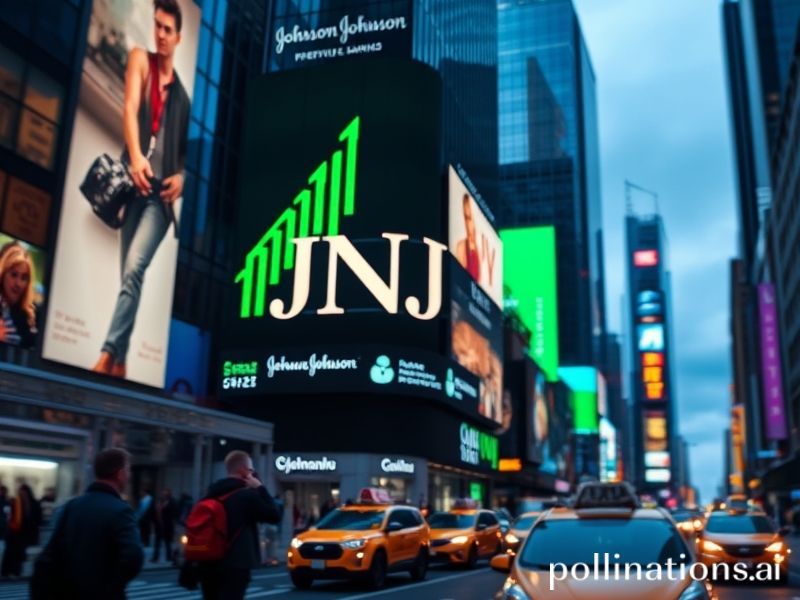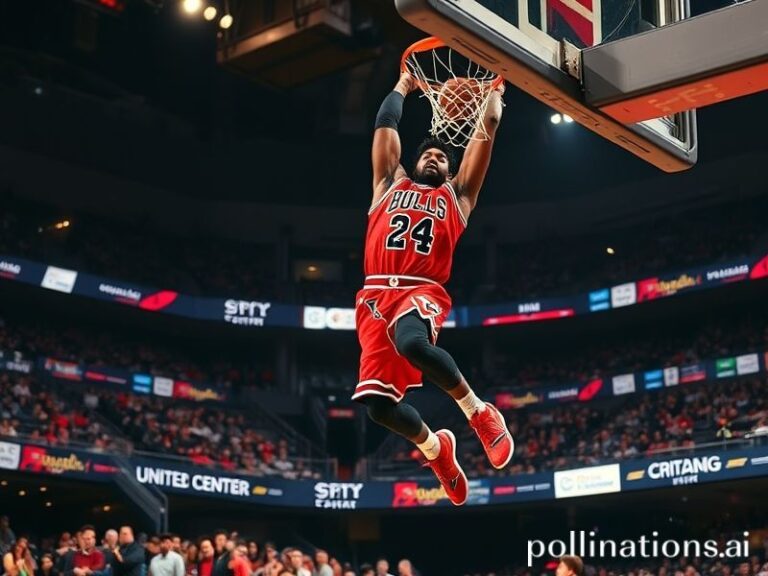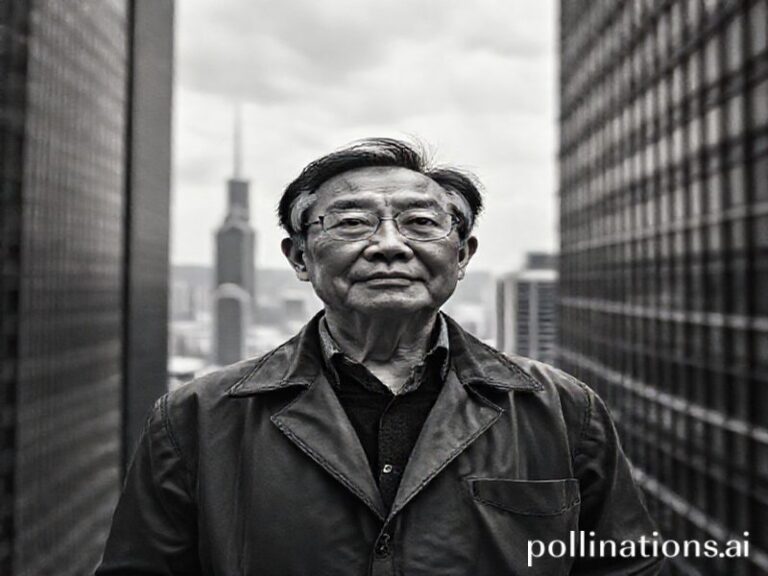From Talc to Ticker: How Johnson & Johnson Stock Became the World’s Favorite Guilty Pleasure
Johnson & Johnson Stock: A Global Soap Opera Starring Baby Powder, Opioids, and the Eternal Optimism of Shareholders
By the time you finish this paragraph, somewhere from Jakarta to Johannesburg a portfolio manager will be refreshing a terminal, praying that J&J’s ticker (JNJ) has twitched upward by at least the cost of a flat white. The stock—grand dame of the Dow, peddler of Band-Aids and bad news—has become a Rorschach test for the planet’s risk appetite. In New York it’s a blue-chip; in Brussels it’s a cautionary tale about talc; in São Paulo it’s a hedge against the real’s mood swings. To the rest of us, it’s simply proof that nothing travels faster than litigation, except maybe the human capacity for selective amnesia.
Let’s begin with the obvious: J&J is not just an American pharmaceutical leviathan; it is a transnational mood ring. When a Missouri jury slaps it with a multibillion-dollar talcum verdict, European fund managers break out in cold sweats. When the company off-loads its opioid liabilities into a Texas-shaped bankruptcy circus, Asian sovereign wealth funds recalibrate spreadsheets while pretending to sip green tea. And when a single vial of its Covid vaccine is tossed for clot concerns, entire African immunization schedules wobble like a Jenga tower in a Nairobi breeze. All of this, mind you, happens while the dividend—hallowed, unbroken since 1963—keeps rising like Lazarus on life support.
The global significance lies not in the scandals themselves—there are only so many ways to monetize human suffering before the plot turns repetitive—but in how effortlessly the world compartmentalizes them. Tokyo day-traders shrug off talc lawsuits as “an American eccentricity”; Frankfurt analysts dismiss opioid settlements as “a cost of doing capitalism.” Meanwhile, CalPERS, Canada’s CPP, and Norway’s oil-funded colossus continue to regard JNJ as a “defensive anchor,” which is finance-speak for “the thing we still trust more than our own politicians.”
Currency markets add another layer of tragicomedy. A weaker dollar inflates J&J’s overseas earnings, sending the ADRs in London and the BDRs in São Paulo on a sugar high. A stronger dollar, conversely, makes emerging-market pension funds wince as their greenback-denominated dividends evaporate like free drinks at a Davos after-party. The irony? Most of the plaintiffs in those talc cases will never own a passport, let alone a brokerage account, yet their medical records are quietly shaping carry trades from Reykjavík to Singapore.
Then there’s the geopolitical subplot. Washington’s newfound enthusiasm for “friend-shoring” pharmaceutical supply chains has turned J&J into a diplomatic bargaining chip. India wants more tech-transfer; South Korea wants cheaper monoclonal antibodies; the EU wants guarantees that its citizens won’t be last in line when the next pandemic souvenir arrives. Each negotiation nudges the stock price, which in turn nudges election cycles, which nudge regulations, in an infinite loop that would make Kafka reach for the aspirin—probably a generic, manufactured in Gujarat.
And yet, despite the asbestos-laced melodrama, JNJ’s balance sheet remains as plump as a baby in a 1980s diaper commercial. Net margins above 20% are the sort of numbers that make European utilities weep into their renewable-energy subsidies. The company’s recent Kenvue spin-off—think Band-Aids and Listerine repackaged as a consumer-goods IPO—was lapped up by yield-hungry Swiss retirees who still believe “personal care” is recession-proof. Somewhere, a Geneva banker is assuring widows that mouthwash never goes out of style, a claim that might hold up until the next TikTok influencer discovers beetroot-based alternatives.
So, what’s the takeaway for the cosmopolitan cynic? J&J stock is less a financial instrument than a mirror: it reflects who we are when the cameras are off. We profess outrage over opioids, then queue for quarterly dividends. We decry corporate malfeasance, then stash the shares in our pension funds because “the yield is too good.” And when the next scandal detonates, we’ll feign surprise, hit refresh on the price chart, and mutter that at least it’s not Boeing.
In the end, Johnson & Johnson is simply the world’s most ingenious perpetual-motion machine: it converts human misery into shareholder value, then recycles the cash into legal settlements, R&D, and reassuringly pastel packaging. The stock may zig, zag, or levitate, but the moral of the story remains beautifully, bleakly consistent: there’s no contagion quite like greed, and no vaccine on the horizon.







